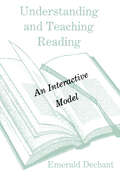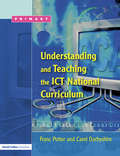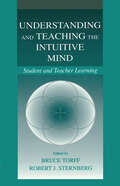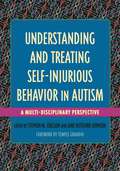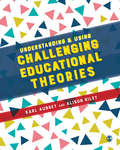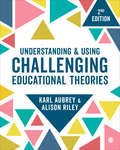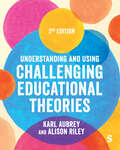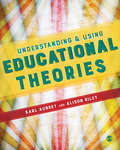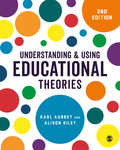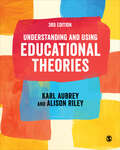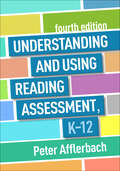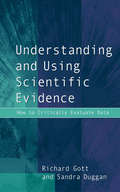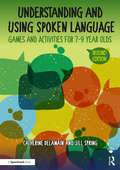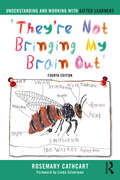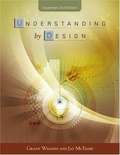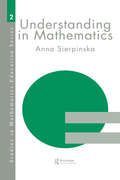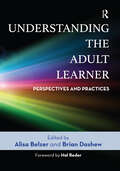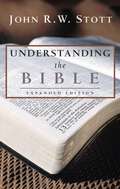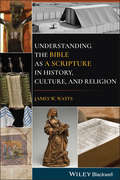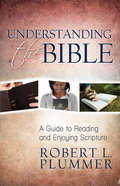- Table View
- List View
Understanding and Teaching Reading: An Interactive Model
by Emerald DechantIn the words of Aldous Huxley, "Every man who knows how to read has it in his power to magnify himself, to multiply the ways in which he exists, to make his life full, significant and interesting." Few people question the value of reading; in fact, most extol its virtues. As our culture becomes more complex, reading plays an increasingly greater role in satisfying personal needs and in promoting social awareness and growth. In the last 20 years, the teaching of this invaluable skill has focused so intensely on comprehension and prediction from context that it has lost sight of the significance of automaticity and fluency in the word-identification process. Reading is a synthesis of word recognition and comprehension; thus, this text is about these basic processes and their integration. A common plea from teachers today is that research and psychology be translated into teaching behavior. Therefore, the aim of this book is twofold: one, to identify, report, organize, and discuss those bits of data, research and theory that are most relevant to the teacher's understanding of the reading process; and two, to help educators to interpret and apply theory and research data to everyday classroom teaching, as well as to the problems encountered frequently in developmental and remedial teaching.
Understanding and Teaching the ICT National Curriculum
by Franc PotterThere is still great uncertainty in the teaching profession regarding the effective delivery of ICT. This introductory book provides both trainee and practising teachers with a clear understanding of the ICT National Curriculum and how to teach it. Combining extensive practical advice with a critical discussion of the key theoretical issues, the book will help teachers develop their pupil's true ICT capability through clear explanations of the Programmes of Study, full guidance on using QCA Scheme of Work, different and creative ideas for delivering the ICT National Curriculum, and the confidence and ability to go beyond the QCA Sceme of Work for ICT.
Understanding and Teaching the Intuitive Mind: Student and Teacher Learning (Educational Psychology Series)
by Robert J. Sternberg Bruce TorffThe intuitive mind is a powerful force in the classroom and often an undetected one. Intuitive conceptions--knowledge or knowledge-structures that individuals acquire and use largely without conscious reflection or explicit instruction--sometimes work to facilitate learning in the classroom and other contexts. But learning may also be impeded by intuitive conceptions, and they can be difficult to dislodge as needed. The literatures in psychology and education include a large and diverse body of theory and research on intuitive conceptions, but this work is limited in some respects. This volume contributes in four ways to overcome these limitations. Understanding and Teaching the Intuitive Mind: Student and Teacher Learning: * pulls together diverse theoretical and methodological approaches to the origin, structure, function, and development of intuitive conceptions; * explores a diversity of academic disciplines--paying equal attention not only to mathematics and science, the fields in which intuitive concepts have been studied most extensively, but also to the social sciences, arts, and humanities; * explicitly links theory and research to educational implications and classroom applications; and * focuses not only on students' intuitive conceptions but also on teachers' intuitive beliefs about learning and teaching. Although the viewpoints of the contributors are diverse, they share the belief that educational practices have much to gain by systematic studies of the intuitive learner and teacher. This volume offers state-of-the-art, research-based information and support for psychologists, teacher educators, educational administrators, teachers, prospective teachers, and others who seek to develop educational practices that are cognizant of (and responsive to) the intuitive conceptions of students and teachers.
Understanding and Treating Self-Injurious Behavior in Autism: A Multi-Disciplinary Perspective
by Temple Grandin John Green Nancy O'Hara Manuel F. Casanova Lucy Jane Miller Margaret L. Bauman V. Mark Durand June Groden Cooper R. Woodard Harumi Jyonouchi Paul Millard Hardy Stephen M. Edelson Kelly Mccracken Barnhill Mary Coleman Emily L. Casanova Karen Misher Leslie Weidenman Jane Botsford Johnson Lauren J. Moskowitz Jamie D. Bleiweiss Alexis B. Ritter Caitlin E. WalshSelf-injurious behavior occurs in almost half of those with autism and is one of the most devastating and challenging-to-treat behaviors. There are many different forms of self-injury, such as head banging, hand biting, hair pulling, excessive scratching, and much more. With contributions from the leading experts in research and treatment, the book provides a comprehensive analysis of self-injurious behavior (SIB) in people with Autism Spectrum Disorder (ASD) or related developmental disabilities, and the different methods available to treat them. Medical and behavioral researchers have studied SIB for over 50 years, but many practitioners and parents are still unfamiliar with the wide range of contributing causes and treatment options. Beginning with an explanation of SIB and its various forms, the contributors outline the many possible underlying causes of self-injury, such as seizures, hormonal imbalance in teenagers, gastrointestinal conditions, allergies, and stress, and show how a multi-disciplinary approach when uncovering the causes of self-injury can lead to successful treatment strategies. They explain the treatment options available for SIB, including nutritional, medical, psychiatric, sensory, and behavioral approaches, and show how an integrative approach to treating self-injury may be effective for many individuals. The book will be an invaluable addition to the bookshelves of any practitioner working with people with an ASD or related condition, as well as parents and direct care providers.
Understanding and Using Challenging Educational Theories
by Karl Aubrey Alison RileySome of the most important developments in educational thought have been put forward by theorists who have challenged existing notions about the aims of education and its role in society. But how do these ideas relate to today’s classrooms and how can you use them to improve your own teaching practice? This textbook gives you a clear overview of fifteen thinkers who have offered challenging perspectives on education, including influential sociological thinkers (Bourdieu, Foucault, Mezirow, Bernstein), those who have questioned the orthodoxy on schooling (Holt, Darling-Hammond) and other key names whose writing has helped shaped our views on teaching and learning. Each chapter includes: · practical examples showing how theories can be used to inform classroom teaching · critiques of each theorist exploring opposing viewpoints and the strengths and weaknesses of different ideas · reflective tasks inviting you to apply what you’ve read to your own educational experiences. This is essential reading for anyone on university and school-based initial teacher education courses training to teach in different educational settings, including early years and adult education, or studying education at undergraduate and postgraduate level.
Understanding and Using Challenging Educational Theories
by Karl Aubrey Alison RileySome of the most important developments in educational thought have been put forward by theorists who have challenged existing notions about the aims of education and its role in society. But how do these ideas relate to today’s classrooms and how can you use them to improve your own teaching practice? This textbook gives you a clear overview of fifteen thinkers who have offered challenging perspectives on education, including influential sociological thinkers (Bourdieu, Foucault, Mezirow, Bernstein), those who have questioned the orthodoxy on schooling (Holt, Darling-Hammond) and other key names whose writing has helped shaped our views on teaching and learning. Each chapter includes: · practical examples showing how theories can be used to inform classroom teaching · critiques of each theorist exploring opposing viewpoints and the strengths and weaknesses of different ideas · reflective tasks inviting you to apply what you’ve read to your own educational experiences. This is essential reading for anyone on university and school-based initial teacher education courses training to teach in different educational settings, including early years and adult education, or studying education at undergraduate and postgraduate level.
Understanding and Using Challenging Educational Theories
by Karl Aubrey Alison RileyIntroducing you to 18 key educational thinkers who have offered challenging perspectives on education, this new edition comes with: - 3 new chapters on Ivan Illich, Loris Malaguzzi and Michael Apple - A glossary of key words related to each theorist’s work - A context-setting overview of key themes - Practical examples that shows how theories can be applied to your practice Use this book with it′s companion title Aubrey & Riley, Understanding and Using Educational Theories 2e (9781526436610)
Understanding and Using Challenging Educational Theories
by Karl Aubrey Alison RileyIntroducing you to 18 key educational thinkers who have offered challenging perspectives on education, this new edition comes with: - 3 new chapters on Ivan Illich, Loris Malaguzzi and Michael Apple - A glossary of key words related to each theorist’s work - A context-setting overview of key themes - Practical examples that shows how theories can be applied to your practice Use this book with it′s companion title Aubrey & Riley, Understanding and Using Educational Theories 2e (9781526436610)
Understanding and Using Challenging Educational Theories
by Karl Aubrey Alison RileyIntroducing: 20 key educational thinkers who have offered challenging perspectives on education Exploring: Their ideas, how to apply them in practice and their relevance to teaching and learning today. Understanding: The strengths and limitations of each theory and links to other concepts. This third edition includes: Two new chapters on the works of Diane Ravitch and Gloria Ladson-Billings Revamped reflective tasks with a greater practical focus for the classroom Fully updated chapters with links to current educational socio-political developments, and expanded critical commentary This is an essential textbook for any university course that includes learning theory, with particular relevance for initial teacher education, education studies and early childhood degrees. Karl Aubrey has recently retired from his post at Bishop Grosseteste University. Alison Riley is the Programme Leader for the BA Early Childhood Studies at Bishop Grosseteste University. The perfect companion to Aubrey & Riley: Understanding and Using Educational Theories 3e (9781529761306).
Understanding and Using Challenging Educational Theories
by Karl Aubrey Alison RileyIntroducing: 20 key educational thinkers who have offered challenging perspectives on education Exploring: Their ideas, how to apply them in practice and their relevance to teaching and learning today. Understanding: The strengths and limitations of each theory and links to other concepts. This third edition includes: Two new chapters on the works of Diane Ravitch and Gloria Ladson-Billings Revamped reflective tasks with a greater practical focus for the classroom Fully updated chapters with links to current educational socio-political developments, and expanded critical commentary This is an essential textbook for any university course that includes learning theory, with particular relevance for initial teacher education, education studies and early childhood degrees. Karl Aubrey has recently retired from his post at Bishop Grosseteste University. Alison Riley is the Programme Leader for the BA Early Childhood Studies at Bishop Grosseteste University. The perfect companion to Aubrey & Riley: Understanding and Using Educational Theories 3e (9781529761306).
Understanding and Using Educational Theories
by Karl Aubrey Alison Riley" I expect that this book will equip and inspire students to engage first-hand with the texts of these creative and influential educational writers."-David Aldridge, Programme Lead: Professional Education, Oxford Brookes University If you're training to teach or studying education a clear understanding of major educational theories and the thinkers behind them is essential in order to appreciate how different practices impact on learning. This textbook gives you a clear overview of the most influential twentieth and twenty-first century thinkers on education, including established names (including Vygotsky, Bruner, Dewey), more recent writers (such as Freire, Kolb, Claxton) and many other important theorists whose writings have helped shaped our views on teaching and learning. Each chapter includes: Practical examples showing how theories can be used to inform classroom teaching Critiques of each theorist exploring opposing viewpoints and the strengths and weaknesses of different ideas Reflective tasks inviting you to apply what you've read to your own educational experiences
Understanding and Using Educational Theories
by Karl Aubrey Alison RileyThis textbook gives readers a clear overview of a selection of the most influential thinkers on education in the last hundred year, including established names (Vygotsky, Bruner, Dewey), more recent thinkers (Freire, hooks, Claxton) and other key names whose writing has helped shaped our views on teaching and learning. This second edition includes new chapters on Albert Bandura, Dylan Wiliam and Carol Dweck. Each chapter includes: Practical examples showing how theories can be used to inform classroom teaching Critiques of each theorist exploring opposing viewpoints and the strengths and weaknesses of different ideas Reflective tasks inviting you to apply what you've read to your own educational experiences.
Understanding and Using Educational Theories
by Karl Aubrey Alison RileyThis textbook gives readers a clear overview of a selection of the most influential thinkers on education in the last hundred year, including established names (Vygotsky, Bruner, Dewey), more recent thinkers (Freire, hooks, Claxton) and other key names whose writing has helped shaped our views on teaching and learning. This second edition includes new chapters on Albert Bandura, Dylan Wiliam and Carol Dweck. Each chapter includes: Practical examples showing how theories can be used to inform classroom teaching Critiques of each theorist exploring opposing viewpoints and the strengths and weaknesses of different ideas Reflective tasks inviting you to apply what you've read to your own educational experiences.
Understanding and Using Educational Theories
by Karl Aubrey Alison RileyThis textbook gives readers a clear overview of a selection of 19 of the most influential thinkers on education, including established names (Vygotsky, Bruner, Dewey), more recent thinkers (Freire, hooks, Claxton) and other key names whose writing has helped shaped our views on teaching and learning. Each chapter includes practical examples showing how theories can be used to inform classroom teaching, and critiques of each theorist exploring opposing viewpoints and the strengths and weaknesses of different ideas. This third edition includes: New chapters on Barak Rosenshine and Daniel Goleman Revamped reflective tasks with a greater practical focus for the classroom More models and theoretical diagrams throughout This is an essential primer for any university course that includes learning theory, with particular relevance for initial teacher education, education studies and early childhood degrees. Karl Aubrey has recently retired from his post at Bishop Grosseteste University. Alison Riley is the Programme Leader for the BA Early Childhood Studies at Bishop Grosseteste University.
Understanding and Using Educational Theories
by Karl Aubrey Alison RileyThis textbook gives readers a clear overview of a selection of 19 of the most influential thinkers on education, including established names (Vygotsky, Bruner, Dewey), more recent thinkers (Freire, hooks, Claxton) and other key names whose writing has helped shaped our views on teaching and learning. Each chapter includes practical examples showing how theories can be used to inform classroom teaching, and critiques of each theorist exploring opposing viewpoints and the strengths and weaknesses of different ideas. This third edition includes: New chapters on Barak Rosenshine and Daniel Goleman Revamped reflective tasks with a greater practical focus for the classroom More models and theoretical diagrams throughout This is an essential primer for any university course that includes learning theory, with particular relevance for initial teacher education, education studies and early childhood degrees. Karl Aubrey has recently retired from his post at Bishop Grosseteste University. Alison Riley is the Programme Leader for the BA Early Childhood Studies at Bishop Grosseteste University.
Understanding and Using Reading Assessment, K-12
by Peter AfflerbachWell established as a teaching resource and course text, this guide to the "whats," "how-tos," and "whys" of reading assessment is now in a thoroughly revised fourth edition. Peter Afflerbach succinctly introduces major types of assessments, including formative and summative performance assessments, teacher questioning, and high-stakes testing. He provides an innovative framework (the CURRV model) for evaluating the suitability of assessments and combining them effectively to meet all students' needs. Emphasis is given to assessing core reading skills and strategies as well as noncognitive and social–emotional aspects of reading development. Helpful features include detailed examples of assessment done well, within-chapter "Enhance Your Understanding" questions and activities, and 25 reproducible and downloadable checklists and forms. New to This Edition *Explains assessment in a science-of-reading context. *Increased focus on equity issues, plus updated theory and research throughout. *Chapter on assessing early reading. *Chapter on assessing digital and critical reading.
Understanding and Using Scientific Evidence: How to Critically Evaluate Data
by Richard Gott Sandra DugganThe basic understanding which underlies scientific evidence - ideas such as the structure of experiments, causality, repeatability, validity and reliability- is not straightforward. But these ideas are needed to judge evidence in school science, in physics or chemistry or biology or psychology, in undergraduate science, and in understanding everyday issues to do with science. It is essential to be able to be critical of scientific evidence. The authors clearly set out the principles of investigation so that the reader will be confident in questioning the experts, making an informed choice or arriving at in informed opinion. The book is intended for a wide range of readers including those who want to: } collect their own evidence } be able to question and judge a wide range of science-based issues that we come across in the press or other media in everyday life } teach others how to understand evidence. This book has been developed from the authors' work with first year undergraduates in a combined science course and in primary teacher training for science specialists. It is suitable for students training as primary science specialists, and also for 'A' level and first-year undergraduates in science and science-related subjects.
Understanding and Using Spoken Language: Games and Activities for 7-9 year olds (The Good Communication Pathway)
by Catherine Delamain Jill SpringUnderstanding and Using Spoken Language is a collection of original games and activities designed to help and support children aged from 7 to 9 years. The book seeks to address language and communication diffi culties for children aged 7–9 by providing a range of fun and engaging activities. The activities focus on both social and language development in areas such as body language, independence, emotions, listening, speaking and auditory memory. The book includes: Over 150 games and activities, which are differentiated for different ages and levels of ability; A clear aim, equipment list and instructions for each activity; Photocopiable templates for ease of use; Supplementary resource sheets including pictures and scripts to use with the activities. Now fully revised and updated in line with current policy and legislation, this book includes material to create an effective speech and language therapy programme in consultation with a therapist. The activities are easy to set up and can be carried out by teachers, classroom assistants or volunteers. This is a unique manual that will be an essential addition to the materials used by professionals working with young children.
Understanding and Working with Gifted Learners: 'They're Not Bringing My Brain Out'
by Rosemary CathcartHave you ever wondered… how to cope with a very bright child when you’ve got 30 other children in the class? what to do now you’re in charge of the gifted programme? what giftedness really is, and what it means? Introducing for the first time in book form, the Holistic Descriptor of Giftedness – a definition for the 21st century, recognising the impact of giftedness on the whole person from infancy to adulthood, providing a deep and satisfying approach to working with gifted learners. Based on this far-reaching approach, this book: sets out five key concepts to help you recognise and meet the needs of gifted learners at every level of schooling (the REACH model) includes a wealth of thoroughly practical teaching strategies to implement the model, with loads of high-interest examples drawn from work by teachers just like you and from gifted learners just like those you know introduces a special three-question conceptual lesson-planning tool to bring all these strategies into highly effective and exciting units of work covers a wide range of supporting topics such as identification, parent perspectives, cultural differences, acceleration, grouping, giftedness with other special needs, and more. This book is written for everyone who lives or works with a gifted young person – classroom teachers, gifted programme coordinators, parents, special needs teachers, counsellors and home-schooling families.
Understanding by Design (Expanded 2nd edition)
by Jay Mctighe Grant P. WigginsDrawing on feedback from thousands of educators around the world who have used the UbD framework since its introduction in 1998, the authors have greatly revised and expanded their original work to guide educators across the K16 spectrum in the design of curriculum, assessment, and instruction.
Understanding in Mathematics (Studies In Mathematics Ser. #Vol. 2)
by Anna SierpinskaThe concept of understanding in mathematics with regard to mathematics education is considered in this volume. The main problem for mathematics teachers being how to facilitate their students' understanding of the mathematics being taught. In combining elements of maths, philosophy, logic, linguistics and the psychology of maths education from her own and European research, Dr Sierpinska considers the contributions of the social and cultural contexts to understanding. The outcome is an insight into both mathematics and understanding.
Understanding the Adult Learner: Perspectives and Practices
by Alisa Belzer Brian DashewAdults seek out learning for very different reasons in different contexts, and this book is intended to support adult educators’ development in responding to this rich array. There is no single way to be an adult learner, and so it should not be surprising that there is no single way to be an adult educator. However, the authors believe that all educators must demonstrate a commitment to meeting adult learners where they are. Adult educators should help learners move forward not only with new content knowledge, information, and skills, but also with new ways of making meaning and seeing themselves, their role, and the world. This volume introduces many theories and concepts that can help adult educators do this effectively.
Understanding the Bible
by Dr John R. W. StottThis book answers foundational questions: Who wrote the Bible? What is its message? Why is it thought to be a "holy" book? How does one read and interpret it? Best of all, though, you'll broaden your vision of Jesus Christ, the focal point of Scripture. How? By better understanding the geographical, religious, and historical concerns that shaped the world in which he lived. You'll see Jesus as never before: both as a man of his times and culture, and as the culmination of a divine providence that prepared the way for the ministry of the Messiah. Written by renowned preacher, writer, and apologist John Stott, this new, expanded edition includes - Questions at the beginning of each chapter to help you focus - New, up-to-date maps for the chapters on history and geography - An index to help you speedily access areas of interest.
Understanding the Bible as a Scripture in History, Culture, and Religion
by James W. WattsUNDERSTANDING THE BIBLE AS A SCRIPTURE IN HISTORY, CULTURE, AND RELIGION The Bible is a popular subject of study and research, yet biblical studies gives little attention to the reason for its popularity: its religious role as a scripture. Understanding the Bible as a Scripture in History, Culture, and Religion integrates the history of the religious interpretation and ritual uses of biblical books into a survey of their rhetoric, composition, and theology in their ancient contexts. Emphasizing insights from comparative studies of different religious scriptures, it combines discussion of the Bible’s origins with its cultural history into a coherent understanding of its past and present function as a scripture.A prominent expert on biblical rhetoric and the ritualization of books, James W. Watts describes how Jews and Christians ritualize the Bible by interpreting it, by expressing it in recitations, music, art, and film, and by venerating the physical scroll and book. The first two sections of the book are organized around the Torah and the Gospels—which have been the focus of Jewish and Christian ritualization of scriptures from ancient to modern times—and treat the history of other biblical books in relation to these two central blocks of the Hebrew Bible and New Testament. In addition to analyzing the semantic contents of all the Bible’s books as persuasive rhetoric, Watts describes their ritualization in the iconic and expressive dimensions in the centuries since they began to function as a scripture, as well as in their origins in ancient Judaism and Christianity. The third section on the cultural history and scriptural function of modern bibles concludes by discussing their influence today and the controversies they have fueled about history, science, race, and gender. Innovative and insightful, Understanding the Bible as a Scripture in History, Culture, and Religion is a groundbreaking introduction to the study of the Bible as a scripture, and an ideal textbook for courses in biblical studies and comparative scripture studies.
Understanding the Bible: A Guide to Reading and Enjoying Scripture
by Robert L. PlummerUnderstanding the Bible will helop anyone learn how to interpret the Bible for themselves. The Bible covers a variety of genres and was written a long time ago, so being aware of solid principles of interpretation is important in order to understand the Bible properly. Plummer walks the reader through improving interpretation skills, using books and tools for interpretation, and determining the meaning of a biblical text.
